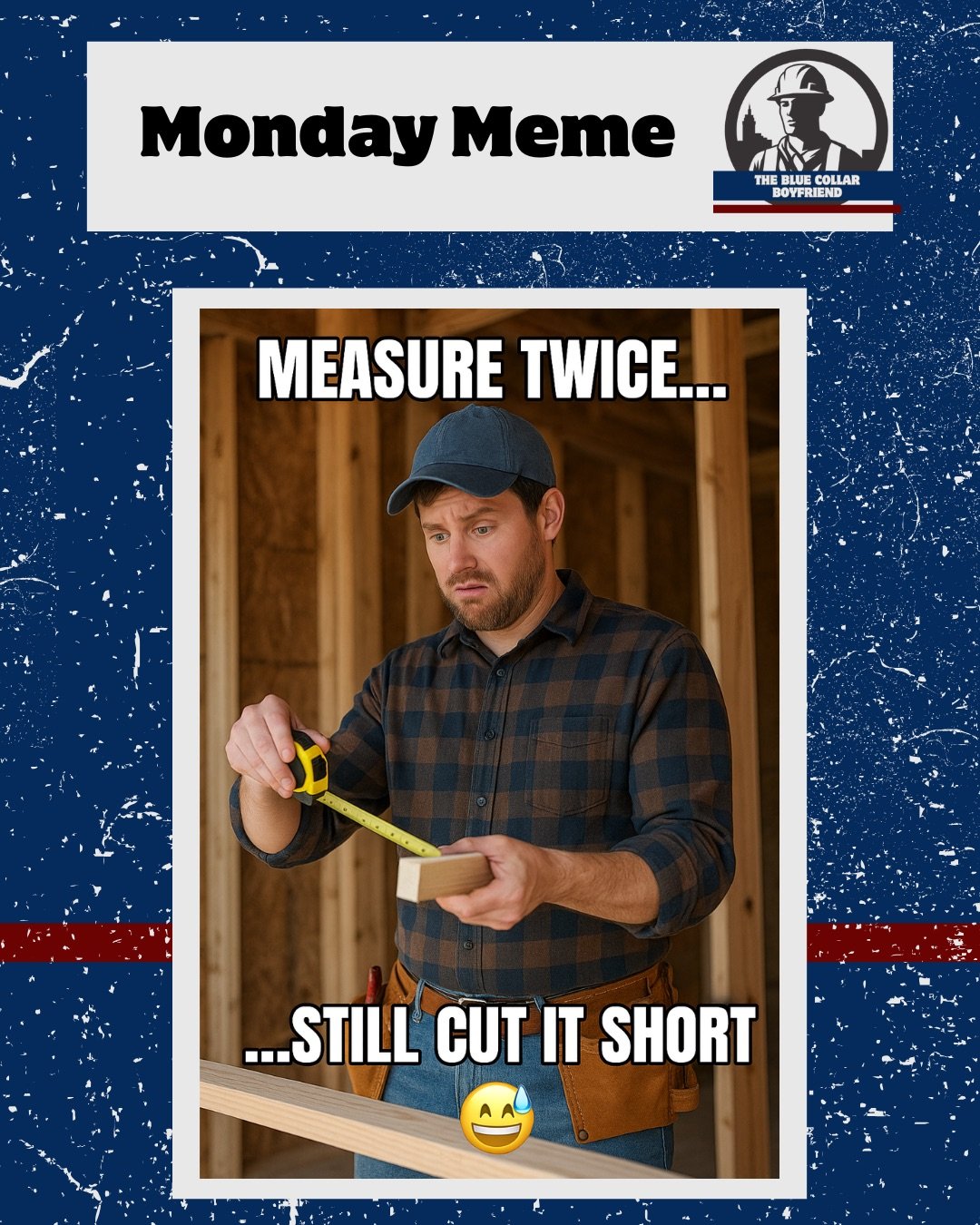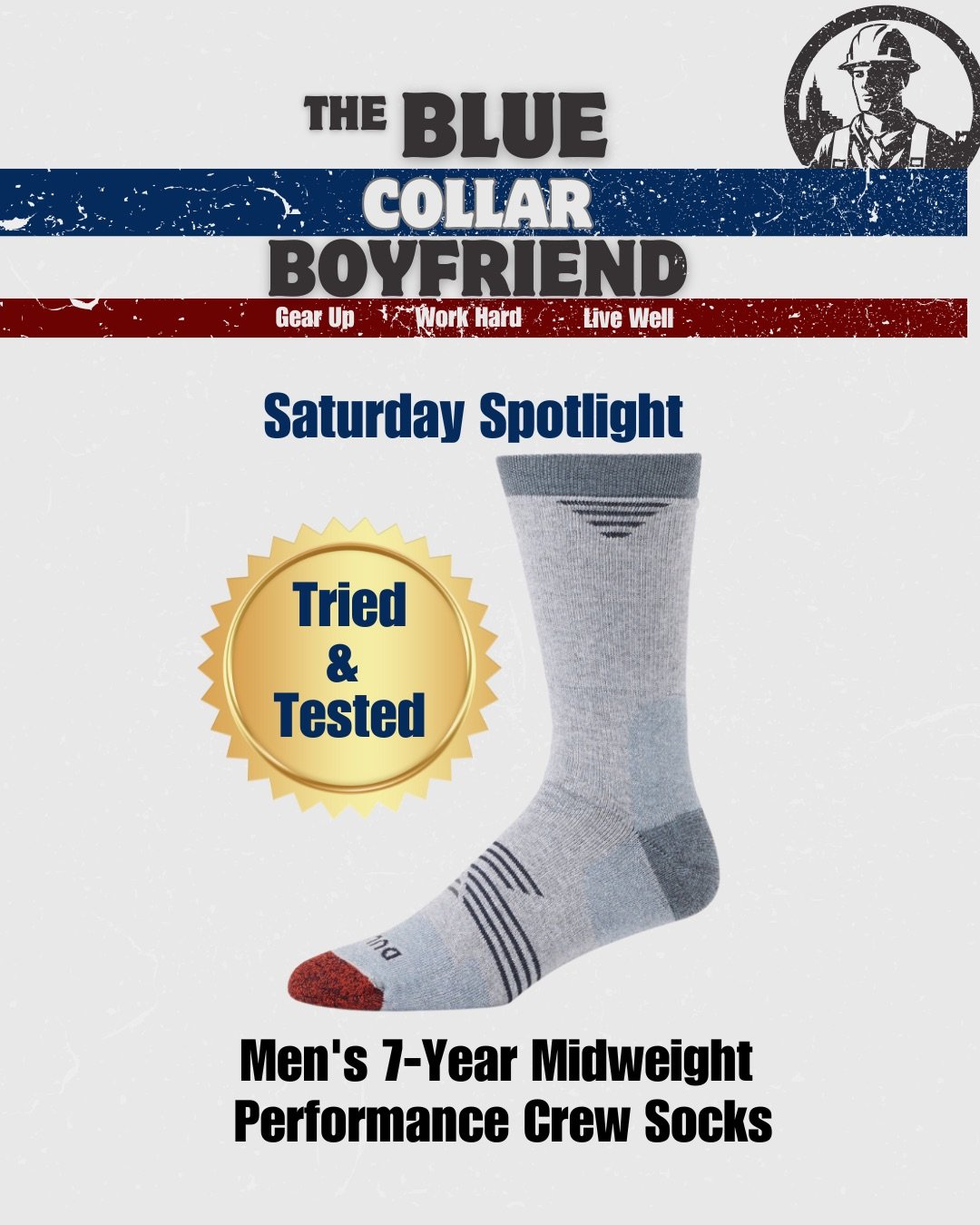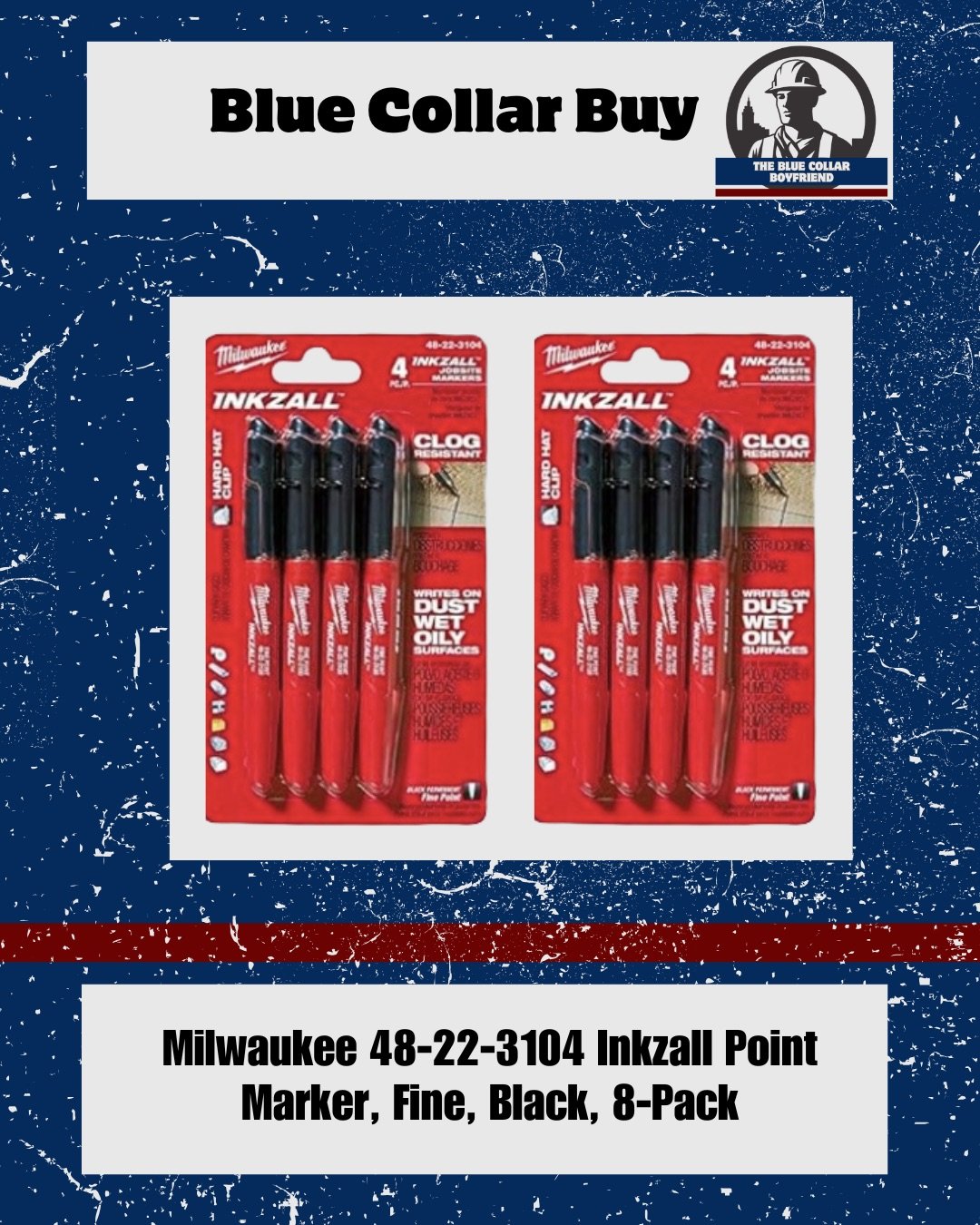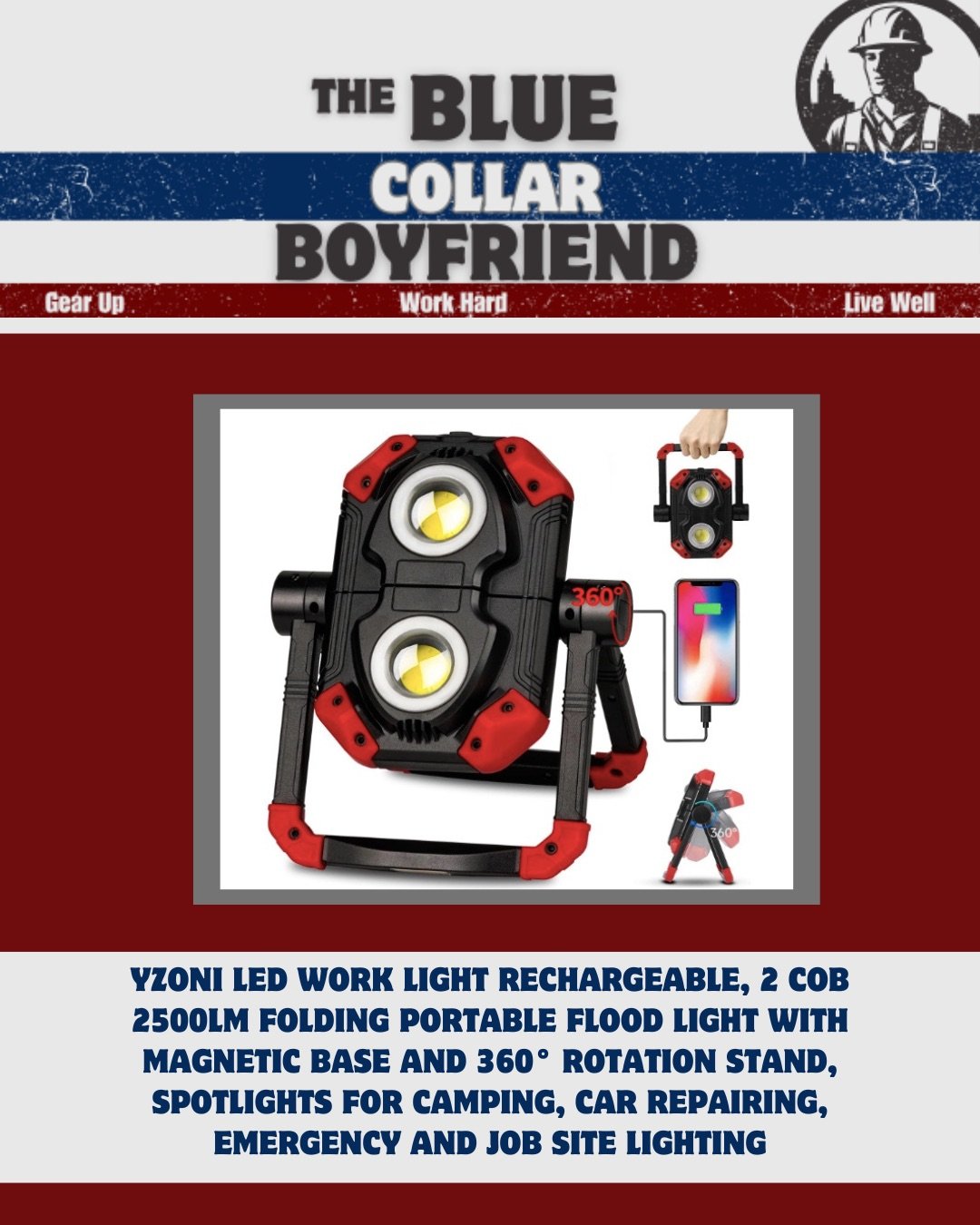
Measure Twice, Cut Once: The Carpenter’s Golden Rule
Why This Rule Matters
In carpentry, precision is everything. One wrong measurement can mean wasted material, extra time fixing mistakes, or even a project that just doesn’t fit right. Taking the time to double-check measurements might seem like a small step, but it saves headaches down the road.
It’s About Respect for Your Craft
Measuring twice isn’t just about accuracy — it’s about pride. It shows you respect the materials you’re working with, the client’s investment, and your own time and skill. Good carpenters know that rushing can lead to costly errors, so patience and care go hand in hand with hard work.
Lessons Beyond the Workshop
This old carpentry rule is great advice for life, too. Whether you’re planning a project, making decisions at work, or handling everyday challenges, taking a moment to double-check and think things through can make all the difference.
A Nod to Every Carpenter Out There
So next time you hear “measure twice, cut once,” remember it’s not just about tools and tape measures. It’s about mastering your craft, working smart, and doing your best work every time.
To all the carpenters and DIY warriors — keep measuring, keep building, and keep inspiring!

When Drywalling Isn’t Your Full-Time Gig, “Good Enough” is a Legitimate Finish
Respect for the Drywall Pros
This meme isn’t poking fun; it’s showing respect. Real drywall professionals dedicate years to mastering their craft, delivering finishes that look flawless and stand the test of time. If you’re not doing it every day, it’s okay to cut yourself some slack.
Why “Good Enough” Sometimes Has to Be Enough
Time Constraints: When drywall is just one part of your job or a side project, you’re balancing speed and quality.
Learning Curve: Drywall is an art—getting it perfect takes practice and patience.
Practicality: Sometimes, a finish that’s “good enough” means the walls look solid, the paint sticks, and the job gets done without overthinking.
Celebrate All Levels of Skill
Whether you’re a seasoned drywall pro or someone who’s “good enough” at drywall to get by, the important thing is the pride in what you build. Every wall patched, taped, or finished adds value and moves the project forward.
So here’s to all the drywall warriors — full-timers and part-timers alike. You’re building more than walls; you’re building respect and community, one panel at a time.

Duluth Trading Co. Men's 7-Year Midweight Performance Crew Socks: Built for the Long Haul
🔧 Key Features
Enhanced Durability: These socks boast more than double the abrasion resistance of the original 7-Year Socks, ensuring they stand up to the toughest conditions.
Temperature Management: Crafted with COOLMAX® EcoMade polyester, made from 100% recycled fibers, they keep your feet cool and dry, even during long shifts.
Moisture-Wicking Technology: Incorporating Nanoglide® nylon, these socks wick away sweat, reduce friction, and help prevent blisters.
Reinforced Padding: With 3 inches of extended padding in the toes, they're designed for steel toe durability, providing added comfort and protection.
Eco-Friendly Construction: Made with sustainable materials, these socks offer both performance and environmental responsibility.
👷♂️ Why They Stand Out
For tradespeople, comfort and durability are non-negotiable. These socks are built to endure the demands of the job while providing all-day comfort. Whether you're on your feet all day or working in challenging conditions, the Duluth Trading Co. Men's 7-Year Midweight Performance Crew Socks are designed to keep up with you.
✅ Final Thoughts
Investing in quality workwear is investing in your comfort and productivity. The Duluth Trading Co. Men's 7-Year Midweight Performance Crew Socks offer the durability, comfort, and performance that every hardworking individual deserves. With their enhanced features and eco-friendly construction, they stand out as a top choice for those who demand the best.

Milwaukee Inkzall Point Marker: Precision Meets Durability
✍️ Key Features
Fine Point Tip: Ideal for detailed markings on various surfaces.
Clog-Resistant Design: Ensures consistent ink flow, even on dusty or oily surfaces.
Quick-Drying Ink: Reduces smearing and enhances visibility.
Versatile Application: Suitable for concrete, wood, metal, and more.
Hard Hat Clip: Keeps the marker within easy reach at all times.
🧰 Why It Stands Out
The Milwaukee Inkzall Point Marker is designed with the tradesperson in mind. Its fine point allows for precise markings, crucial for tasks that require accuracy. The clog-resistant feature ensures that the marker performs consistently, even in less-than-ideal conditions. Whether you're working with concrete, wood, or metal, this marker provides clear, durable markings that stand up to the rigors of the job site.
✅ Final Thoughts
For professionals who demand reliability and precision, the Milwaukee Inkzall Point Marker is an essential tool. Its combination of fine-point accuracy, durability, and thoughtful design makes it a standout choice for anyone in the trades.

Illuminate Your Work: Yzoni LED Work Light Review
💡 Key Features
Dual COB LED Output: Equipped with two COB (Chip-on-Board) LEDs, this work light delivers a powerful 2500 lumens of brightness, ensuring your workspace is well-lit.
360° Rotating Stand: The adjustable stand allows you to direct light precisely where you need it, making tasks more efficient.
Magnetic Base: The strong magnet enables hands-free operation by attaching the light to metal surfaces, ideal for under-the-hood work or metal structures.
Rechargeable Battery: Say goodbye to disposable batteries. The built-in rechargeable battery ensures long-lasting use, saving you money in the long run.
Waterproof Design: Rated for outdoor use, this light can withstand various weather conditions, making it perfect for job sites or camping trips.
🛠️ Ideal Applications
Mechanics: Illuminate engine bays for detailed repairs.
Electricians: Light up dark corners during installations.
DIY Projects: Perfect for home workshops and renovations.
Outdoor Activities: Great for camping, fishing, or emergency situations.
✅ Final Thoughts
The Yzoni LED Work Light combines durability, brightness, and versatility, making it a must-have for anyone in the trades or those who enjoy hands-on projects. Its features cater to both professional and personal needs, ensuring you're always prepared, day or night.

Climbing the Ladder: Careers in the Electrical Trade
When it comes to electrical careers, what starts as a spark can turn into a full-blown lightning strike — lighting the way from entry-level helper all the way up to master electrician or business owner. Whether you’re just starting out or looking to level up, the electrical trade offers a solid career path with plenty of room to grow, specialize, and lead.
Here’s a breakdown of the key steps along the ladder in the electrical trade — what each role entails and what it takes to get there.
🧰 1. Electrical Helper / Laborer
The first step for many is working as an electrical helper or laborer on job sites. This entry-level role requires no license but offers invaluable exposure to the tools, materials, and safety practices electricians rely on every day.
Who it’s for: Young workers, career changers, anyone looking to get their foot in the door
What you do: Assist licensed electricians, carry tools, prep job sites
Pro tip: “Show up on time, ask questions, carry wire — and keep learning while you earn.”
🛠️ 2. Electrical Apprentice
This is where the real training begins. Apprenticeships typically last 4 to 5 years, combining hands-on work with classroom instruction. Apprentices work under licensed journeymen or masters, logging thousands of hours before they can get their license.
What you learn: Electrical code, conduit bending, wiring, safety, troubleshooting
Why it matters: It’s your boot camp — the foundation for a lifelong career
Pro tip: “Stay safe, study hard, and soak up every bit of knowledge.”
🧑🔧 3. Journeyman Electrician
Once licensed, a journeyman electrician can work independently, run small jobs, and supervise helpers and apprentices. You can also specialize in residential, commercial, industrial, or low-voltage work — each with its own skill set and opportunities.
Pay range: $30–$50+ per hour depending on location and specialty
What you do: Lead projects, troubleshoot, mentor younger workers
Pro tip: “You’re no longer learning — you’re leading. And you’re just getting started.”
🎓 4. Master Electrician
Achieving master electrician status takes years of experience plus passing a rigorous state exam. Masters have the authority to pull permits, design complex systems, and train the next generation. Many become mentors, instructors, or even start their own contracting business.
What it means: Trusted with the blueprint, the budget, and the crew
Pro tip: “Mastery means leadership both on the tools and behind the scenes.”
👷 5. Jobsite Leadership Path
For electricians who want to lead on the ground:
Foreman: Runs a single crew on site
General Foreman: Oversees multiple crews or sites
Superintendent: Manages entire field operations for a project
These roles balance boots-on-the-ground know-how with coordination and management skills — keeping projects on time and budget.Pro tip: “You still wear boots, but now you carry a laptop too.”
💼 6. Office & Business Side
Not all electricians stay in the field — many move into office roles that shape entire projects or companies:
Project Manager: Handles budgets, schedules, and job progress
Estimator: Prepares bids and material takeoffs
Branch Manager / Division Lead: Oversees large geographic or service areas
Electrical Contractor / Business Owner: Runs the company, hires crews, bids jobs, and grows the business
Pro tip: “You built your skills, now you’re building a legacy.”
🔧 Specialty Roles Along the Way
The electrical trade also offers exciting specialized careers, including:
Low Voltage Technician / Systems Integrator
Instrumentation & Controls Electrician
Solar PV Installer
High Voltage Lineworker
Electrical Inspector
Safety Director
These roles often require additional training or certifications but can open doors to unique industries and higher pay.
Ready to Spark Your Career?
Electrical work isn’t just a job — it’s a craft, a challenge, and a path full of opportunities. Whether you want to get your hands dirty on the jobsite or manage projects from the office, there’s a place for you in the electrical trade.
At The Blue Collar Boyfriend, we celebrate every hardworking electrician climbing that ladder — lighting up their career and their community.
Thinking about starting or growing your career in the trades? Drop a comment or reach out — we’re here to help!

We’ve all Been There
We’ve all been there.
The alarm blares early, the coffee’s brewing, and you’re staring down the barrel of a full workweek ahead. But somehow, your brain’s still stuck in weekend mode — and your body? Well, it’s not quite ready to jump back on the grind.
Cue the classic Monday mood:
Imagine a construction worker, hard hat tilted just a little too low, eyes half-closed, leaning on a tool with that unmistakable “I’m-not-ready” look. That’s Monday for so many tradesmen and women — and honestly, it’s kinda comforting knowing you’re not alone in feeling this way.
Why Mondays Hit Harder for Blue Collar Workers
Unlike office jobs where you might roll out of bed and log into a Zoom call in your pajamas, the trades demand early mornings, physical stamina, and mental toughness right out of the gate. Whether you’re swinging a hammer, wiring a panel, or welding steel, Mondays mean:
Early starts before the sun is even up
Heavy lifting and long hours
Planning for a week full of challenges (and unexpected curveballs)
It’s not just about showing up — it’s about showing up ready to work, and some Mondays, that just feels impossible.
The Honest Truth: It’s Okay Not to Be Ready
If your first thought on Monday morning is “Ugh, not today,” you’re human. The important thing is that you push through — with respect for your craft and yourself.
Here’s a little secret from The Blue Collar Boyfriend: The most seasoned pros still have Mondays where they drag their feet. What sets them apart is their commitment to finish strong, no matter how slow they start.
How to Beat the Monday Slump on the Jobsite
So, how do you flip that “not ready” vibe into “mission-ready” mode? Here are a few quick tips for tradespeople starting their week:
Prep the Night Before: Lay out your gear, pack your lunch, and get your tools ready so Monday morning isn’t a scramble.
Fuel Up Right: A solid breakfast and coffee can do wonders for your focus and energy.
Set a Small Goal: Even if it’s just nailing one task first thing, achieving something early can build momentum.
Lean on Your Crew: Talk to your coworkers, share a laugh, and remember you’re all in this together.
Take Your Breaks: Rest is part of the job—use your downtime to recharge so you can finish the day strong.
We’ve Got Your Back, Monday to Friday
At The Blue Collar Boyfriend, we know Mondays aren’t just a calendar day — they’re a state of mind. Whether you’re a seasoned journeyman or just starting out, we see you. And we’re here with gear, advice, and a little humor to help you tackle the week with grit and heart.
So, next time you catch yourself looking like that “not ready” construction worker meme, just remember: you’re not alone. Take a deep breath, grab your coffee, and let’s get to work.
Keep grinding, keep shining. The Blue Collar Boyfriend’s got your back every step of the way.

Built for the Back Pocket: Why This Slim Wallet with Money Clip Belongs in Every Tradesman’s Pocket
🔧 Why It Works for the Blue Collar Life
Whether you're climbing scaffolding, laying pipe, or wiring up a new build, you don’t want to sit on a bulky, overstuffed wallet. This slim design holds just the essentials—your ID, cards, and a few folded bills—without the brick-in-your-pocket feel.
Key Features:
Slim Profile: Slides into your front or back pocket without creating a lopsided sit or snagging on your jeans.
Money Clip: Keep cash secure and accessible for quick coffee runs, lunch breaks, or that midweek donut stop.
RFID Blocking: Protects your personal info from digital pickpockets—because you guard your tools, and your identity deserves the same.
Durable Construction: Made to handle wear and tear, just like your work boots.
👖 Real Talk: Why He’ll Actually Use It
If your guy is still carrying around that beat-up tri-fold from 2003, it’s time for an upgrade. This wallet does the job without looking flashy, and that’s exactly the kind of style that fits the tradesman mindset—practical, solid, and gets the job done.
One of our testers (a journeyman electrician) said he forgot it was even in his pocket until he needed to flash his union card at the gate. That’s the kind of everyday carry we’re looking for.
🛠️ Blue Collar Bonus: Perfect Gift Alert
Birthdays, anniversaries, Father’s Day, or just because—you can't go wrong gifting a wallet that fits his lifestyle. Add a handwritten note, tuck in a little gas money, and you've just scored extra points with the hardworking guy in your life.
📦 Grab It Here:
👉 Shop the Slim Wallet with Money Clip on Amazon
Tag us @thebluecollarboyfriend once he opens it—let’s see that back-pocket upgrade!

Seat Armor for the Blue-Collar Grind
🚗 Duluth Trading Body‑Guard Bucket Seat Cover: Tough Protection for Hard Workers
When your truck’s seat sees sawdust, mud, grease, dog fur, and everything in between, you don’t need a pretty cover—you need a warrior. Enter the Body‑Guard Bucket Seat Cover from Duluth Trading Company, built to protect the seats of hardworking crews and weekend warriors alike.
Built for the Daily Grind
Made from heavy-duty, PVC‑backed 1200‑denier polyester, this cover is engineered to stop fray, slop, and sabotage on contact—whether it’s mud, coffee spills, or tools sliding on the seat.
Bigger & Better
Duluth heard the feedback: today's truck seats are bigger. This latest version features a wider, deeper seat pan and taller back so it fits oversized modern bucket seats snugly and securely.
Smart Features You’ll Actually Use
Shock‑cord fit adjusts tight and doesn’t interfere with side‑airbags
Oversized front pocket keeps bulky wallets or tools within reach—no digging under the seat
Dual side pockets let you keep controls accessible
Full back pocket big enough for a clipboard or atlas
Why Trades Pros Love It
Electricians, plumbers, heavy‑equipment operators—anyone who slides in and out of a dusty ride knows the toll it takes on upholstery. This cover keeps seats clean, eliminates stains, and saves thousands in repairs.
Use It Everywhere
After a muddy job site
With pets in tow
When hauling messy materials
On daily commutes that include coffee stops
Durability That Delivers
It carries Duluth Trading’s “Superior Standard” and “No Bull Guarantee” badge—you can see and feel the craftsmanship. Built tough enough for 8‑hour shifts and weekend jobs, yet removable for cleaning or showing.
Final Take
If you're hauling grit, gear, or growl into your truck seat, this cover isn’t just an accessory—it’s armor. Rugged, smart, and designed specifically for big seats, the Body‑Guard Bucket Seat Cover from Duluth Trading is a no‑brainer for hardworking folks who take pride in their gear.

🏗️ Ironworkers: The Backbone of the Build
🔩 What Ironworkers Really Do
Ironworkers handle some of the heaviest, most essential work in construction. Let’s break down their key specialties:
1. Structural Ironwork
Structural ironworkers are the ones you see scaling skyscrapers or guiding steel beams into place with crane signals and nerves of steel. Their work includes:
Installing steel beams and columns
Building commercial and high-rise skeletons
Connecting massive components using bolts, rivets, or welds
Operating cranes, hoists, and rigging systems
Reading complex blueprints and load specs with precision
2. Reinforcing (Rebar) Work
Before the concrete is poured, rebar ironworkers are hard at work reinforcing the bones of the build. Their job ensures everything stays solid under pressure:
Cutting, bending, and tying rebar
Laying steel mesh inside concrete forms
Supporting bridges, highways, and high-load structures
Working with post-tension cables and pre-stressed concrete
3. Ornamental Ironwork
Ironwork isn’t just strong—it can be beautiful too. Ornamental ironworkers combine craftsmanship with durability:
Creating and installing railings, staircases, and balconies
Fabricating gates, fences, and detailed metal features
Decorative welding, grinding, and finishing techniques
Restoring historic metal elements with care and skill
4. Rigging & Welding
No steel gets set without proper rigging—and no framework holds without solid welds. These tradespeople handle:
Rigging heavy steel into position
Arc welding, plasma cutting, and metal prep
Oxy-fuel cutting for clean joints
Building temporary supports and jobsite safety systems
5. Industrial & Infrastructure Projects
Ironworkers aren’t limited to buildings—they support the nation’s biggest infrastructure projects:
Bridges, overpasses, and road systems
Power plants and renewable energy towers
Cranes, conveyors, and shipyard structures
Offshore platforms and high-stakes industrial builds
🔧 Tools of the Trade
Ironworkers don’t go into battle without serious gear. Common tools and equipment include:
Welding machines, plasma cutters, torches
Torque and spud wrenches, sleever bars
Safety harnesses, lanyards, fall arrest systems
Rigging chains, shackles, slings, and come-alongs
🎓 Training & Entry Path
Becoming an ironworker usually means entering a union apprenticeship program (3–4 years). Apprentices learn everything from welding and blueprint reading to advanced rigging and safety standards. Common certifications include:
OSHA 10 or 30
Fall protection and aerial lift training
AWS-certified welding credentials
💰 Wages & Earning Potential
Ironwork pays well—and for good reason. It’s risky, rewarding, and essential.
Hourly pay: $25–$40, with union wages often higher
Annual income: $70k–$100k+ with overtime and travel
Leadership roles: Foremen and superintendents can earn significantly more
🚧 The Road Ahead
Ironworkers are in high demand thanks to booming urban growth, aging infrastructure, and federal investment in transportation and energy projects. With safety, skill, and a solid work ethic, ironworkers have strong career longevity and advancement opportunities.
Bottom line? If you’ve got guts, grit, and a head for heights, ironwork might be your calling. These folks don’t just build buildings—they build legacies.

take pride in the work
🎯 What Makes a Perfect Camera Install?
Strategic Positioning: It’s not just about mounting a camera high up. It's about sightlines, motion coverage, and minimizing blind zones.
Cable Discipline: Ever seen a clean wire job? No tangled mess. Just neatly routed, secured, and often invisible to the untrained eye.
Weatherproofing & Stability: Outside cameras? They’re dealing with rain, wind, and critters. A good tech preps for that.
Client Awareness: The best techs walk the space and show the client the footage to confirm: yes, everything is covered.
These are the details that make a difference—and the reason why your local camera installer might just be the MVP of your entire security setup.
💪 To the Camera Installers Who Never Miss
This blog post is for you.
The ones up on ladders in 90-degree heat, testing angles, tucking wires, adjusting focus, and explaining to clients that no, the camera doesn’t make coffee too.
You keep our homes, businesses, and job sites safer. And you do it with skill, patience, and often—some serious ladder acrobatics.
👀 Tag a Tech, Share the Love
We already said it on social media, but it’s worth repeating:
“Shoutout to the pros who don’t miss a corner or a cable.”
#RespectTheInstall #EveryAngleCovered #BlueCollarBoyfriend #SkilledTrades #JobsiteLaughs #SecurityCameraInstaller #ElectricianHumor
Know a camera tech who always gets the job done right? Tag them. Share this post. Let them know they’re seen—even by the cameras they installed.

Master Perfect Fits with the Contour Gauge Duplicator: The Ultimate Tool for Tradesmen
Master Perfect Fits with the Contour Gauge Duplicator: The Ultimate Tool for Tradesmen
When it comes to woodworking, tiling, flooring, or any project that requires precise cuts to fit around irregular shapes, a good contour duplicator is an absolute game-changer. The Contour Gauge Duplicator available on Amazon is a simple yet powerful tool that helps you replicate complex profiles and shapes quickly and accurately — saving time, reducing frustration, and boosting your craftsmanship.
What Is a Contour Gauge Duplicator?
A contour gauge is a tool made up of hundreds of tightly packed plastic pins that slide independently. When pressed against an object, the pins conform exactly to the shape’s contours, capturing its outline. This pattern can then be traced onto your workpiece for precise cutting or fitting.
Whether you’re fitting flooring around uneven baseboards, trimming tiles around pipes, or crafting custom molding, this tool ensures a perfect match every time.
Why Tradesmen Love This Contour Gauge
High Precision: The duplicator captures fine details of even the most irregular shapes for flawless replication.
Wide Measuring Surface: With a 5-inch width and 3-inch length, it covers larger areas in one press.
Durable Construction: Made from sturdy ABS plastic with quality pins that won’t bend or break easily.
User-Friendly: Lightweight, easy to use, and clean — no complicated setup or calibration needed.
Compact and Portable: Fits easily into your toolbox or work belt for on-the-go use.
How It Makes Your Job Easier
Imagine trying to cut a piece of flooring that needs to fit exactly around a curved doorway or an oddly shaped pipe. Without a contour gauge, you’re guessing, measuring multiple times, and wasting material. This duplicator instantly copies the exact shape so you can mark and cut your materials confidently and quickly.
This tool isn’t just for flooring or woodwork — it’s also perfect for metalwork, drywall, cabinetry, and even automotive projects where duplicating curves or shapes is necessary.
Perfect Gift Idea for Tradesmen
If you’re searching for a practical, affordable, and highly useful Father’s Day or birthday gift for the tradesman in your life, this contour gauge duplicator is a winner. It’s a tool they’ll actually use every day, making their work cleaner, faster, and more professional.
Final Thoughts
The Contour Gauge Duplicator is a must-have for anyone who works with custom shapes or irregular profiles. Its simple design, precision, and versatility help tradespeople tackle challenging cuts with confidence. Add this to your toolkit or gift it to a hardworking tradesman to make every project fit like a glove.

Security & Camera Installers – Trade Profile & Service Breakdown
🛠️ What They Do: A Service-by-Service Breakdown
1. CCTV Camera Installation
From front porches to factory floors, camera installers are the eyes behind the lens.
They handle:
Residential & commercial surveillance setups
Indoor and outdoor camera mounting
Analog, HD-CVI, and IP camera systems
Wired and wireless configurations
PTZ (pan-tilt-zoom) and 360° dome cameras
2. Alarm System Installation
These systems are your first line of defense when trouble knocks. Installers set up:
Burglar/intrusion alarm systems
Motion detectors, glass-break sensors, and door/window contacts
Panic buttons and emergency alert devices
Wired and wireless system setups
Programming and control panel configuration
3. Access Control Systems
From smart locks to biometric readers, access control tech keeps unauthorized hands out.
Keypad and card reader installation
Mag locks, electric strikes, and door sensors
Biometric and smart card access
Integration with fire and security systems
Multi-door and building-wide access control
4. System Integration & Networking
No security setup runs in isolation. Integration is key.
Connecting cameras to DVR/NVR systems
Remote viewing setup via mobile apps
Wi-Fi and hardwired networking
Smart home integration (Alexa, Google, Apple HomeKit)
5. Maintenance & Troubleshooting
When a system fails, these folks are the first responders.
Cable testing and terminations (CAT5e/CAT6)
Upgrades and component replacements
Firmware updates and software fixes
Cleaning, realignment, and lens replacements
🔧 Tools of the Trade
Security installers show up with a full toolkit and a game plan. Common gear includes:
Cable testers, crimpers, punch-down tools
Drills, ladders, fish tape, conduit benders
DVRs/NVRs, POE switches, IP cameras, alarm panels
CAT5e/CAT6 cable, coax, connectors, and power supplies
📚 Training & Certification
While some enter through on-the-job training, many employers prefer certified techs. Paths include:
Low-voltage technician programs
Manufacturer-specific training (Honeywell, Hikvision, etc.)
ESA/NTS, NICET certifications
A strong grasp of electrical code, safety, and networking
💰 Average Pay
Security and camera installers can earn solid blue-collar wages:
Entry-level: $22–$35 per hour
Experienced or certified techs: $60k–$80k+ annually
(Especially with commercial or government contracts)
🔮 Job Outlook
The future is bright for this growing field:
Increasing demand for smart home integration and surveillance
More crossover with IT, automation, and access control
Techs who combine customer service with networking knowledge are especially valuable
💬 Final Word from The Blue Collar Boyfriend
Security installers might not wear a badge, but they protect lives and livelihoods every single day. Whether you're thinking about breaking into the trade or hiring a pro to secure your site, this role deserves a solid nod of respect.
Got a favorite camera setup, install tip, or tech horror story? Drop it in the comments or tag us in your job site stories—we’d love to feature the unsung heroes keeping the world wired and protected.

No-Crack Hand Cream: The Trade-Approved Fix for Dry, Cracked Skin
If your hands clock in before sunrise and don’t quit until the job is done, you already know what winter, wind, and work boots can do to your skin. Cracked knuckles, split fingertips, rough elbows—it’s all part of the grind. But that doesn’t mean you have to live with it.
Enter: No-Crack Hand Cream—a tried-and-true favorite since 1942. Farmers, factory workers, mechanics, and tradespeople of all kinds have kept this stuff in their trucks, toolboxes, and shop drawers for good reason.
💪 Why We Like It
Non-Greasy, Fast-Drying Formula
No waiting around for it to soak in. You can use it and get right back to the job.Built for Blue Collar Skin
It doesn’t just soften—it heals cracked, chapped hands, feet, and elbows.A Little Goes a Long Way
One jar lasts forever (unless you start using it as shaving cream… more on that below).
“Never have I had a closer shave—and whatever’s left, I smooth onto my face. Pass the word.”
— Real customer review
Now that’s the kind of multitasking we can get behind.
🧰 Who’s It For?
Electricians with split knuckles
Plumbers up to their elbows in cold water
Concrete workers, roofers, mechanics, and anyone with calluses earned, not bought
Tradeswomen dealing with dry skin from gloves and cold temps
Anyone who works hard and needs a skin solution that works harder
🔧 Where to Keep It
Jobsite bag
Truck console
Tool cabinet
Nightstand
Gym bag
🛠 Final Word from The Blue Collar Boyfriend
Taking care of your hands isn’t soft—it’s smart. You need them to make a living, so treat them like the tools they are. Grab yourself a jar of No-Crack Hand Cream and get back to work without feeling like your skin’s about to split open.
Trust us—this stuff earns its keep.
🔗 Get Yours Here:

Door Installers: Trade Profile & Service Breakdown
Door Installers: Trade Profile & Service Breakdown
When it comes to making sure your doors fit perfectly and function smoothly, door installers are the unsung heroes behind the scenes. These skilled professionals specialize in fitting, adjusting, and finishing doors in all kinds of settings—from cozy homes to sprawling commercial buildings. Their work requires precision, physical strength, and deep knowledge of construction principles and product specifications.
Whether you’re a homeowner curious about what goes into a door install, or a fellow tradesperson exploring career options, this guide breaks down everything you need to know about the door installation trade.
1. Residential Door Installation: More Than Just Hinges and Knobs
Door installers handle a wide range of doors inside and outside your home, including:
Interior Doors: Bedroom, bathroom, closet, and bifold doors are carefully hung and adjusted for smooth operation and privacy.
Exterior Doors: From front entry to patio, French, and storm doors, installers ensure your doors provide security and weather protection.
Sliding Doors: Glass sliders, barn-style doors, and pocket doors require specialized hardware and precision fitting.
Custom & Specialty Doors: Arched, soundproof, and security doors require expert craftsmanship to meet unique architectural needs.
2. Commercial Door Installation: Built for Durability & Safety
Commercial projects demand specialized door types designed to meet strict building codes and high traffic use:
Hollow Metal & Fire-Rated Doors: Essential for safety in schools, offices, and industrial buildings.
Aluminum Storefront Doors: Durable and visually appealing, these doors welcome customers with style.
Automatic Doors & Operators: For accessibility and convenience in retail and medical facilities.
Security & Access-Control Systems: High-tech installations help protect property and control entry.
3. Retrofit & Replacement: Giving Old Doors New Life
Replacing a door involves much more than swapping slabs:
Removing old doors and prepping the frame for new installs.
Upgrading door frames, jambs, and hardware for longevity.
Adjusting for weatherproofing and energy efficiency, improving comfort and utility bills.
Refinishing or resizing doors to comply with building codes and ensure a perfect fit.
4. Specialized Door Services: Security & Compliance
Some installations require extra care and expertise:
Garage Doors: Manual and motorized systems, installed and maintained for smooth operation.
Security Doors & Gates: Reinforced doors to protect homes and businesses.
Bullet-Resistant & Storm-Rated Doors: For high-risk areas requiring advanced protection.
ADA-Compliant Doors & Thresholds: Ensuring accessibility and legal compliance.
5. Hardware & Finishing Touches
A door isn’t complete without the right hardware and finishing work:
Locksets, knobs, handles, and hinges fitted precisely.
Door closers, stops, and panic bars for safety and convenience.
Weatherstripping and thresholds to keep out drafts and moisture.
Trim, casing, and touch-up carpentry to blend seamlessly with surrounding décor.
Tools & Materials Door Installers Use
Power drills, screwdrivers, chisels
Levels, shims, and measuring tapes
Oscillating multi-tools and jigsaws for cutting and adjustments
Door slabs, pre-hung units, frames, and hardware kits
Training & Entry into the Trade
Most door installers learn through on-the-job training or apprenticeship programs, often linked to carpentry, glazing, or building maintenance career paths. Key skills include knowledge of building codes, safety standards, and a sharp eye for detail.
What Door Installers Earn
Hourly rates range from $20 to $30 for general installs.
Specialized commercial or security installers often earn higher wages.
Self-employed installers can make $60,000+ annually, depending on work volume and market demand.
Future Outlook for Door Installers
Door installation remains a solid trade with steady demand fueled by:
New residential construction and commercial buildouts.
Growing interest in energy-efficient doors and upgrades.
Increasing need for advanced security systems.
Installers who focus on precision and quality finish work stand out and stay competitive.
Final Thoughts
Door installers play a crucial role in keeping buildings secure, efficient, and aesthetically pleasing. Their blend of technical skill and craftsmanship ensures every door not only fits but performs reliably for years to come.
Whether you’re considering a career as a door installer or looking to hire one, understanding the breadth of this trade helps appreciate the expertise and hard work behind every perfectly hung door.

15 Fathers Day Gifts for Dads Who Work With Their Hands
15 Father’s Day Gifts for Dads Who Work With Their Hands
No Ties, Just Tools: The Ultimate Gift Guide for Blue-Collar Dads
He’s the guy who fixes things before you even know they’re broken. The first to show up, the last to leave, and the one who swears he doesn’t want anything for Father’s Day. But let’s be real — hardworking dads deserve better than a gas station mug or another pair of socks. That’s why we put together this no-fluff, blue-collar-approved Father’s Day gift guide with gear, gadgets, and workwear he’ll actually use.
Whether your dad is on the tools, running the crew, or the kind who still has that same tape measure from 1996, these picks are built for the job — and for the man who does it right.
1. Tools That Hit Different
Klein 11-in-1 Screwdriver
Milwaukee Packout Modular Tool Box
DeWalt Cordless Compact Router
Why He'll Love It: Every tradesman has a “favorite tool” — even if he won’t admit it. These are the upgrades he won’t buy for himself, but will thank you for every time he reaches for them.
2. Workwear Built to Work
Carhartt Rugged Flex Pants
Ariat Rebar Work Shirts
Brunt Work Boots (Composite Toe)
Why He'll Love It: Good gear takes the edge off a long day. These picks keep him cool in the heat, warm in the cold, and comfortable no matter where the job takes him.
3. Back Savers & Game Changers
Adjustable Height Jobsite Table
Kneeling Pad or Gel Knee Sleeves
Rolling Tool Caddy with Organizer
Why He'll Love It: He might not say it, but his back, knees, and shoulders definitely have something to say. These are the unsung heroes that keep him on the job longer and with less pain.
4. Under-$50 MVPs
Magnetic Wristband for Screws
Jobsite Coffee Thermos
Folding Utility Knife with Quick Blade Release
Why He'll Love It: If you’re shopping on a budget, these gifts pack way more punch than their price tag. Great for dads, stepdads, grandpas, or the guy who raised you right with a pair of pliers and a strong handshake.
5. For Off the Clock (Mostly)
Bluetooth Jobsite Speaker
Subscription to a Trade Magazine
Custom-Engraved Tape Measure or Pocket Tool
Why He'll Love It: Even the hardest working guys need downtime. These picks let him chill without straying too far from his roots.
Not Sure What to Get? We've Got You.
Our advice: skip the generic gifts and get something that shows you know the kind of work he does — and the kind of man he is. You can find all these items (and more we actually recommend) on our [LinkTree] or visit [Our Shop Page].
And hey — if you're the one out there working the tools, Happy Father’s Day to you. We see you. We appreciate you. Keep building.
Need help finding a gift? Drop us a DM on Instagram or Facebook. We’re happy to point you in the right direction.

🪚 Carpenters – Trade Profile & Service Breakdown
:
🪚 Carpenters – Trade Profile & Service Breakdown
Carpenters are the backbone of the building trades—quite literally. These skilled professionals work with wood, engineered materials, and composites to create, install, and repair everything from structural frames to intricate finish details. Whether you're building a house from the ground up or adding custom built-ins to a cozy home office, a carpenter makes it happen with precision and craftsmanship.
In this profile, we break down the major service categories within the carpentry trade and highlight what makes this line of work one of the most essential—and diverse—in construction and remodeling.
1. Framing & Structural Work
The first thing most people associate with carpentry is framing—and for good reason. This is where the skeleton of a building is constructed.
Residential and commercial framing
Wall, roof, and floor systems
Decks, porches, and gazebos
Concrete formwork for foundations and slabs
Carpenters in this area need to have a rock-solid understanding of structural integrity, load-bearing walls, and blueprint reading.
2. Interior Finishing
Once the bones of the building are up, finish carpenters step in to give it polish and personality.
Trim installation: baseboards, crown molding, wainscoting
Doors and windows: framing, installation, repair
Cabinet installation and custom builds
Closet systems and built-in storage
This phase is where attention to detail and precision become everything. A great finish carpenter can transform a room with just a few well-cut boards.
3. Exterior Carpentry
Curb appeal and exterior durability start with the hands of a carpenter.
Siding installation (wood, composite, cement board)
Soffit and fascia work
Exterior doors and window framing
Fencing, gates, pergolas, and outdoor features
Working outdoors means dealing with the elements, so these pros need to know which materials last and how to install them correctly.
4. Remodeling & Renovations
The best remodels happen when a carpenter is on the job. Whether it's bringing new life to an old space or expanding the square footage, their expertise is key.
Kitchen and bathroom remodels
Wall alterations and drywall framing
Attic, garage, or basement conversions
Flooring installation: hardwood, laminate, engineered
Remodeling work also means working in occupied homes, which takes a good attitude, clean work habits, and smart planning.
5. Finish Carpentry & Custom Woodwork
When homeowners want something unique, they call on finish carpenters and woodworkers who specialize in high-detail craftsmanship.
Custom shelving, bookcases, and fireplace mantels
Handrails and staircases
Ornamental woodwork and trims
Millwork installation and customization
This is where creativity meets expertise—and where carpenters often find the most pride in their work.
6. Commercial Carpentry
Beyond residential work, many carpenters build out commercial spaces that must be both functional and up to code.
Office or retail buildouts
Acoustic ceiling systems
Partition wall systems
Storefront framing and finishes
These jobs often move fast and require coordination with electricians, plumbers, and HVAC crews—so communication and flexibility are key.
7. Specialized Carpentry Niches
Some carpenters follow their passion into specialized, often artistic or historical fields.
Historic restoration
Boatbuilding and marine carpentry
Theatrical set construction
Exhibit/display carpentry for museums and trade shows
These niches require mastery, patience, and sometimes a touch of theatrical flair.
🧰 Tools & Materials of the Trade
Carpenters are only as good as the tools they wield. Here's a peek inside the toolbelt:
Common Tools:
Circular saws, miter saws, table saws
Nail guns, drills, routers
Levels, squares, tape measures, chalk lines
Materials Used:
Dimensional lumber, plywood, MDF
Hardwood flooring, trim, composite panels
Fasteners, adhesives, and specialty hardware
🎓 Training & Entry into the Trade
Becoming a carpenter typically involves a 3–4 year apprenticeship, but many also enter the trade through:
Vocational or technical school programs
Union apprenticeships or contractor mentorships
On-the-job training with local contractors
Carpenters must read blueprints, understand building codes, and know the strengths and weaknesses of the materials they work with.
💵 Average Pay & Career Outlook
The national average wage for a carpenter ranges from $25–30/hour, but specialists in finish carpentry, cabinetry, or custom work can earn significantly more—especially in high-demand urban areas or as independent contractors.
📈 Future Outlook
The job outlook is solid, especially with growing interest in:
Home remodeling
Green building practices
Custom and small-batch construction
Carpenters who continue learning and expanding their skill sets—especially in cabinetry, remodeling, or sustainable materials—stay in high demand.
🧠 Final Cut
Carpenters shape the spaces we live, work, and gather in. They combine strength with skill, calculation with creativity. Whether they’re raising walls or refining trim, these tradespeople make construction personal—and beautiful.
If you’re a carpenter or love someone who is, we see you—and we’re building a community that celebrates what you do, one board at a time.

Forecast doesn’t matter: a tribute to landscapers who show up anyway
You check the weather app.
It’s going to be 102° with a chance of pop-up thunderstorms.
You sigh. You reschedule your lunch plans. You complain about your AC not keeping up.
But not the landscaper.
He’s already on his third yard of the day. Shirt soaked. Grass clippings stuck to his arms. Tan lines sharper than his hedge trimmers.
🌿 When You Work Outdoors, the Weather Isn’t a Factor — It’s a Given
Landscapers don’t just work outside — they own it.
They’re not just mowing lawns; they’re fighting back nature’s takeover, one crisp edge at a time.
Rain in the forecast?
They pack the rain gear.
Scorching sun overhead?
They chug water like it’s their second job.
Freezing winds in early spring?
Still there — tuning up equipment, prepping for mulch season.
💪 The Unseen Grind
Most people only see the end result — a neatly mowed lawn, clean walkways, maybe some symmetrical flowerbeds.
What they don’t see is:
5:30 AM fuel-ups at the gas station
Loading and unloading 500 pounds of gear daily
Fighting a riding mower up a 30° slope
Taking a lunch break under the only shady tree in the neighborhood
And they definitely don’t see the skipped vacations, the last-minute schedule changes, or the sunburned necks.
📸 Inspired by the Meme
We recently shared a meme that hit home:
“100° heat index? Rain in the forecast?
The grass didn’t get the memo.”
It got laughs — and it got likes — but most of all, it got recognition.
Because if you know, you know.
🙌 To the Landscapers Out There…
We see you.
We see the hustle, the heat, the hands-on work that transforms overgrown chaos into curb appeal.
You’re not just making things look good — you’re making neighborhoods livable, one lawn at a time.
Here’s to the ones who show up, forecast be damned.

Stay Safe and Mission-Ready with the Hurricane 1000V Insulated Electrician Screwdriver Set
Screwdriver Set
When you’re working with electricity, there’s no room for shortcuts. Safety, durability, and reliability aren't just nice-to-haves — they’re must-haves. That's why we’re excited to spotlight the Hurricane 1000V Insulated Electrician Screwdriver Set — a powerhouse kit built for blue-collar pros and serious DIY warriors alike.
Why We Recommend It
✅ Certified Safe:
This set is VDE and GS certified to handle up to 1000 volts safely. You can trust it to get the job done without risking your hide.
✅ Complete 11-Piece Kit:
The Hurricane Set includes everything you need:
4 Slotted Blades
2 Phillips Blades
2 Pozidriv Blades
3 Torx Blades
1 Electroprobe
1 Removable, Versatile Handle
No guesswork, no scrambling for the right tool mid-job.
✅ Built Tough:
Each piece is crafted from premium Chrome Vanadium Steel with hardened magnetic tips. Plus, the manganese phosphate surface treatment adds serious durability and corrosion resistance — because these tools were made to work as hard as you do.
✅ Impact-Resistant Storage Box:
The thickened, anti-slip, and anti-drop storage case keeps your gear protected and organized — even when the jobsite gets rough.
✅ For Professionals and DIY Heroes:
Whether you're wiring an entire house or replacing a light switch at home, this set is safe, dependable, and up to the task.
Where to Get Yours
We’ve made it easy to grab the Hurricane 1000V Insulated Electrician Screwdriver Set — just head over to our Linktree (linked in our bio or sidebar!) and shop through The Blue Collar Boyfriend.
⚡ Stay safe. Stay mission-ready. Always finish strong. ⚡

The Ultimate Garage Companion: Torin TR6300 Red Rolling Creeper Garage/Shop Seat
Whether you're a weekend warrior or a full-time mechanic, working on cars can take a toll on your body. If you’re tired of bending, kneeling, or squatting uncomfortably while you get the job done, we’ve got a solution that’ll make your garage work feel like a breeze: the Torin TR6300 Red Rolling Creeper Garage/Shop Seat.
This isn’t just any mechanic stool. It’s your new best friend in the garage, designed to give you the comfort, mobility, and durability you need to work smarter, not harder.
Comfortable Seating for All Your Garage Work
Let’s face it—working on your car or truck can be uncomfortable, especially if you're on your knees for hours at a time. But with the Torin TR6300, you can kiss back pain and sore knees goodbye. The soft, fully padded seat ensures you stay comfortable no matter how long the job takes. You can focus on what you’re doing without constantly shifting or feeling like you need a break.
Stay Organized and Efficient with the Tool Tray
Who doesn’t love a tool that helps you stay organized? This creeper seat is equipped with a segmented tool tray that keeps all your essential tools within arm’s reach. No more scrambling around for that wrench or socket that’s just out of sight. Whether you're tightening bolts or replacing parts, having your tools organized and easily accessible can make the job a lot smoother and faster.
Durable Design That’s Built to Last
The Torin TR6300 isn’t just about comfort—it’s also built to last. Constructed with heavy-duty tubular steel, this creeper seat is sturdy enough to handle up to 250 lbs. Whether you're working under the hood or working on your latest DIY project, you can trust this seat to stay stable and hold up to the toughest tasks.
Glide Like a Pro with 360-Degree Swivel Casters
Mobility is key when you’re working in a tight space, and the Torin TR6300 delivers on that front. It features 4 swivel casters that rotate 360 degrees, allowing you to smoothly move from one part of your vehicle to another. No more awkward shifting, bending, or moving your whole body to reach that one spot. With this creeper seat, you’ll glide effortlessly across the floor, saving you time and energy.
Peace of Mind with a 1-Year Manufacturer Warranty
We know tools and gear can take a beating in the garage, but the Torin TR6300 comes with a 1-year manufacturer warranty, so you can feel confident in your purchase. This stool is built for long-term durability, but if you encounter any issues, you’re covered.
Why You Need the Torin TR6300 Red Rolling Creeper Garage/Shop Seat
If you spend any time working on your vehicle, you know how important comfort, mobility, and durability are. The Torin TR6300 Red Rolling Creeper Garage/Shop Seat offers all of that in one package. Whether you're a DIY enthusiast or a professional mechanic, this stool will make your workday easier and more comfortable.
Ready to roll in comfort? Grab the Torin TR6300 for your garage or workshop and take your comfort to the next level. Simply head to our Linktree in bio to get your hands on this must-have tool!
Conclusion:
With its padded seat, tool tray, durable construction, and smooth mobility, the Torin TR6300 Red Rolling Creeper Garage/Shop Seat is an absolute game-changer for anyone who spends time working under the hood. Don’t let discomfort slow you down—make your garage work easier, faster, and more enjoyable today!
